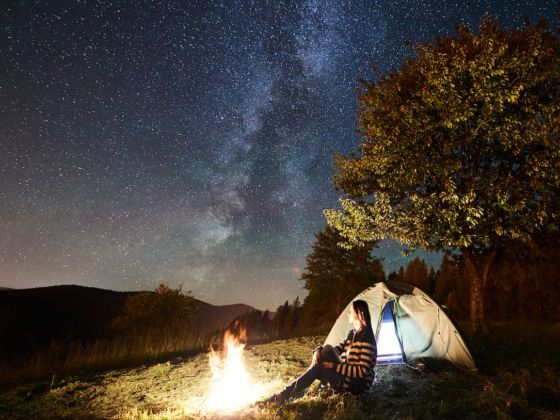The first time I tried camping alone I was maybe nine years old. I’d pitched a tent in my front yard with the help of my mom, who I then made promise to let me brave the wilds of our lawn all by myself. I was a big kid, after all. Spending a night alone under the stars was proof of that.
I’ve since faced more daunting prospects than being woken up by the morning sprinklers as both a camper and a solo traveler. Until a recent road trip from California to Colorado, however, venturing into the actual wilderness on my own was not one of them.
